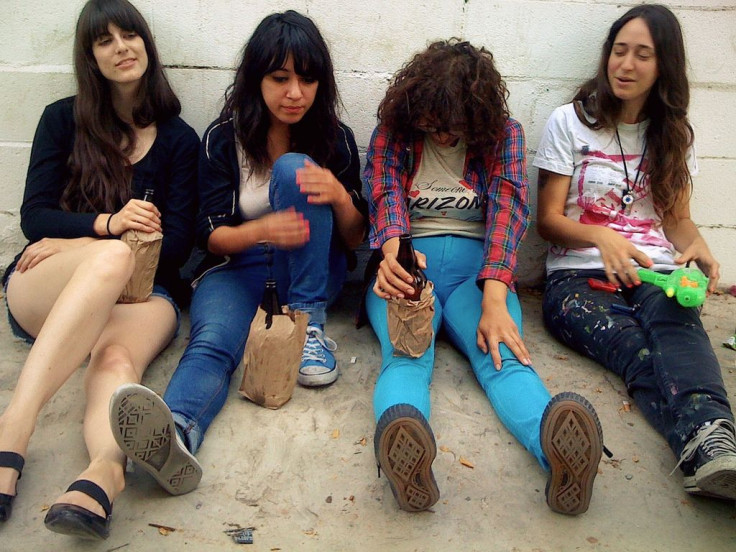For Teens, Insomnia And Poor Sleep May Predict Binge Drinking, Regrettable Drunken Sex

Slightly more than a quarter of school-aged children and 45 percent of teens do not sleep enough. While this statistic may surprise you, what’s even more remarkable is that a new study from Idaho State University finds sleep may be the crystal ball of teen behavior. Researchers discovered a teen’s sleep difficulties and hours of sleep can predict binge drinking, risky sex, drug use, and other unhealthy behaviors.
“Parents need to understand their children's sleep schedule, patterns, and habits,” said Dr. Maria M. Wong, a professor in the department of psychology at the university. “If children have sleep difficulties or poor sleep hygiene, it is important for parents to talk to them and find out the factors that may be causing the problems.”
Insomnia Nation
According to data from 2013, one in 10 eighth graders and more than a third of 12th graders used alcohol in the past month. The figures for illicit drug use may be lower but still alarming to parents: Eight percent of eighth graders and a quarter of 12th graders reported using one or more illicit drugs during the last 30 days. Increasingly, scientists are suggesting sleep difficulties and insomnia may be an important risk factor for substance use. And meanwhile, the number of teens have trouble sleeping rises: One 2008 study showed that nearly one in 10 teens had trouble falling asleep or staying asleep every day or almost every day throughout the year.
The goal of the current study, then, was to investigate the relationships between sleep difficulties, hours of sleep, and substance-related problems. Wong and her co-authors began their analysis by looking at the data gathered by the National Longitudinal Study of Adolescent Health (ADD HEALTH). Using questionnaire and interviews, this national survey examined the lives of 6,504 teens. For Wong’s analysis, the team of researchers focused on data from three waves: those involved between the years 1994 and 1995; 1996; and between 2001 and 2002.
Next, the researchers “used sleep difficulties at a previous wave to predict substance-related problems at a subsequent wave,” they state in their published study. At all points, they made sure to factor out alcohol-related problems during the first wave.
After crunching the numbers, Wong and her colleagues discovered sleep difficulties during the first wave predicted binge drinking and use of illicit drugs during the second wave. First wave sleep difficulties also forecast other alcohol and drug problems during the second wave interviews, including getting drunk or very drunk, driving under the influence, alcohol-related interpersonal problems, and even regrettable (drunken) sexual situations. A similar link was found connecting fewer hours of sleep during the first wave and alcohol-related interpersonal problems and binge drinking during the second wave.
While similar, the relationship between second wave sleep variables and third-wave substance-related problems was weaker than that of the first two waves. Wong hopes future research will address how sleep difficulties and deprivation may affect brain mechanisms.
Source: Wong MM, Roberson G, Dyson R. Prospective Relationship Between Poor Sleep and Substance-Related Problems in a National Sample of Adolescents. Alcoholism: Clinical & Experimental Research. 2015.



























